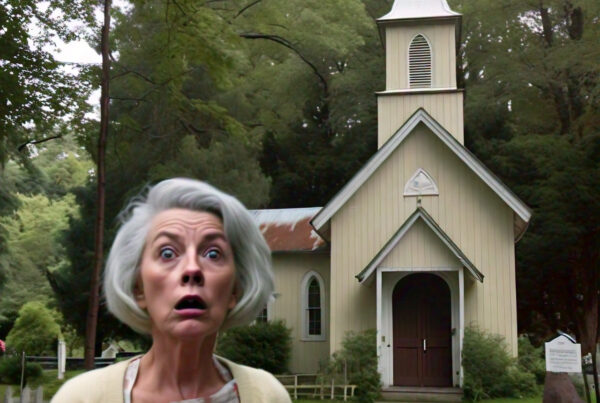
The first elders meeting after the pastor was caught was tense. Some of the elders didn’t see why this was such a big deal, others were focused on a speedy path to restoration, while one elder believed the pastor’s actions were disqualifying and grounds for immediate dismissal. Over the course of the next few weeks the elders coalesced around three main questions:
- Who are we to pass judgement?
- Shouldn’t we extend the same grace the pastor preached about?
- How soon can we restore the pastor?
By the end of the month the lone dissenting elder resigned and left the church, leaving the other six to move forward on a path that led to the pastor’s return to preaching within weeks, and reinstatement in a lead role soon after. It became obvious that it was time to for me to leave because my answers to the three questions above clearly did not align with those of the elders.
Every time a church leader’s immorality becomes public I see a form of these questions on blog sites and on social media. Who are we to judge? Don’t we believe in grace? Isn’t restoration the goal? I have spent a lot of time thinking, praying, and reading about these questions, and have landed at the same place I was when I left that church; the answers are in the questions.
Who are we to judge?
Jesus admonition, “Do not judge others…” in Matthew 7 is the go-to verse for the point of view that we are in no position to judge others. Paul clearly said that “All have sinned,” so how can we in good conscience judge others? Who are we to judge?
The full context of Jesus’ words are helpful.
“Do not judge others, and you will not be judged. For you will be treated as you treat others. The standard you use in judging is the standard by which you will be judged. And why worry about a speck in your friend’s eye when you have a log in your own? How can you think of saying to your friend, ‘Let me help you get rid of that speck in your eye,’ when you can’t see past the log in your own eye? Hypocrite! First get rid of the log in your own eye; then you will see well enough to deal with the speck in your friend’s eye.”
Matthew 7:1-5 NLT
Jesus did not prohibit judging, he is simply explaining how the Kingdom works. Since I will be judged, I will be subject to the same standard that I set for others. The answer isn’t no standard, no judgement, the answer is consistency.
Neither did Jesus say we should never take a speck out of a friend’s eye. He said we need to deal with our junk before dealing with other people’s sin. He didn’t say leave others blinded, he said do the necessary work in our own lives first.
In his first letter to the Corinthian church Paul clearly says that we are to judge other Christians.
It isn’t my responsibility to judge outsiders, but it certainly is your responsibility to judge those inside the church who are sinning. God will judge those on the outside; but as the Scriptures say, “You must remove the evil person from among you.”
1 Corinthians 5:12-13 NLT
Since none of us is without sin, there is no place for self-righteousness in the church. There is, however, an important time and place for sober minded judgement when a leader is in sin.
What about grace?
If the core of Christianity is grace, if we are all sinners saved by grace, how can we not extend the same grace Jesus offers us to pastors and leaders who fail? Look at King David, he sexually assaulted his neighbor and then had her husband killed to cover his sin. If David can be called “a man after God’s own heart,” then who are we to condemn another man for his sin?
It is interesting to look at the context of this quote. When Paul refers to David as a man after God’s own heart he is citing 1 Samuel 13:14 when Samuel says to Saul,
“But now your kingdom must end, for the Lord has sought out a man after his own heart. The Lord has already appointed him to be the leader of his people, because you have not kept the Lord’s command.”
1 Samuel 13:14 NLT
This takes place before David is anointed King, before he met Uriah and his wife Bathsheba, before Nathan became a prophet, and before David committed some of the most egregious sins recorded in the Bible. Samuel wasn’t endorsing David’s actions, he was speaking prophetically about a man he’d yet to meet. David’s actions, later condemned by Nathan, led to catastrophic results for David, his family, and for the kingdom of Israel. David wasn’t immune to grace, but neither did grace give David immunity for his actions.
Grace is a messy, difficult thing. In God’s grace he allowed Jesus to die a horrible death, under the banner of grace Ananias and Saphira died for their deception. Grace isn’t some kind of cosmic get out of jail free card.
Grace in the absence of justice is simply license, a free pass to sin and the destruction that comes with it.
Isn’t restoration the goal?
Within days or weeks of the revelation of a leader’s sin the conversation turns to restoration. What will the process look like? How long will it take? Who should lead the organization while we wait for the leader to return? The challenge is we often confuse restoration with reinstatement. Reinstatement is about getting the leader back into the same role. Restoration is about
-
- Restoring a right relationship with God
- Restoring a shrunken heart
- Restoring a marriage, and family
- Restoring broken relationships
- Restoring health to people crushed by the leader’s sin
- Restoring integrity, trust, holiness
There is no set timeline or program for restoration. Restoration requires repentance, time, accountability, introspection, amends, reconstruction of a life and soul.
Restoration built on a timeline for reinstatement will fail. True restoration will take a lifetime.
I am not saying that every leader with moral sin is permanently disqualified from reinstatement to ministry; the circumstances of immorality vary wildly. Reinstatement just can’t be the primary goal of restoration. Some leaders can come back to ministry, some can even come back to the role where they failed. Some cannot. Reinstatement should be a completely separate conversation from restoration. Every leader is eligible for restoration, not every leader is eligible for reinstatement.
The last word
I hope this topic will simply cease to be a thing. Pastors will stop sleeping with people they’re not married to, leaders will stop using their power for sex, and church staff will simply use texting for important messages and stupid memes. While we wait for that day let’s agree to a sober understanding of judgment, grace, and restoration when others fail.


